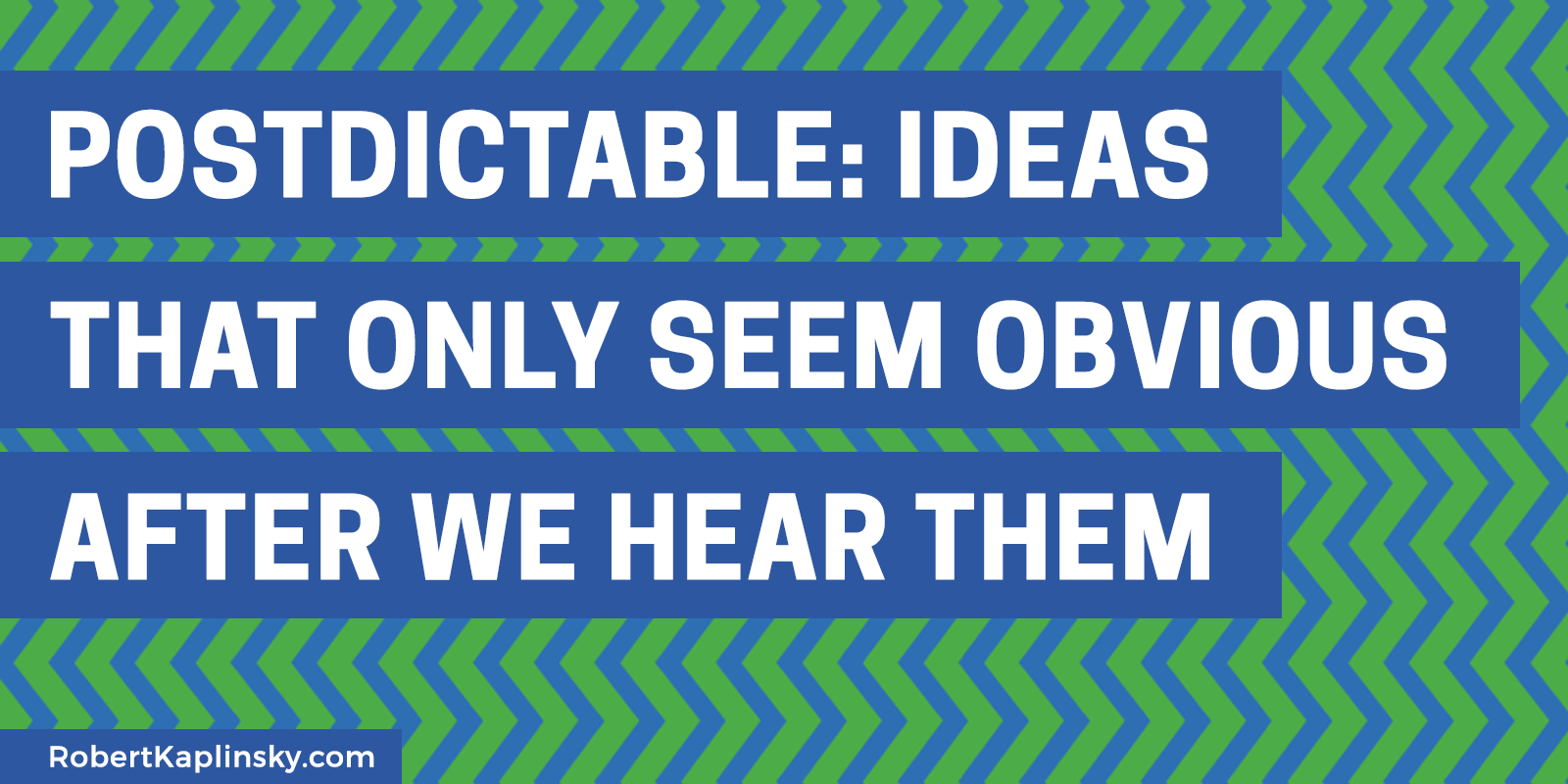I love magic tricks. They often make my brain race, straining for some explanation of how the impossible was possible. Most of the time that’s where it ends: with wonder and amazement.
Sometimes I cheat though. I occasionally go to YouTube and search for a video to explain what I saw. What’s interesting is how quickly my opinion of the trick changes. My astonishment quickly fades and instead I wonder how their technique wasn’t always obvious to me.
My favorite word for describing this new feeling is “postdictable.” When something is predictable, it’s obvious what’s going to happen… before it happens. When something is postdictable, it’s obvious what’s going to happen… after it happens.
We’ve all had moments where we’ve heard about something new that we had never considered but instantly realized was brilliant.
I asked teachers on social what they found postdictable in education. You can read their full responses on Twitter and Facebook but here are some of my favorites. While some may be familiar, I imagine some will also be postdictably brilliant too.
When kids just "knew the answer's ask them "but what did your brain do?" All of a sudden, they can explain it.
— Theresa Wills (@theresawills) October 8, 2020
That in a traditional grading scale, 50% of the pie is a failing grade. Always loved 0-4 scoring in my gut, but the visual pie of A-F percentages was something I’d never considered visually. 🤯
— Julie May (@MayShasta) October 7, 2020
Remove erasers from the class room- normalizes making mistakes and shows teachers mistakes and therefore enables them to help fix/ review misunderstandings or problems with learning.
— Peter (@WineMind1) October 7, 2020
"Dare to go bare" — start the year off with empty classroom walls and bulletin boards. Co-create the learning space together with your students, rather than pre-decorating without their learning needs or individuality in mind.
— Michelle Horst, OCT (@Michelle_Horst) October 8, 2020
Make sure you acknowledge each student at least once in a class period. Say their name and have some interaction. This way they don’t go through a day without anyone noticing them.
— Deborah Nixon (@NixonMath11) October 8, 2020
Saying “What questions do you have?” instead of “Do you have any questions?” #gamechanger It’s amazing how many more questions students ask with that small change. #miched #mschat #flipclass
— Tara Maynard (@tmaynard5) October 8, 2020

